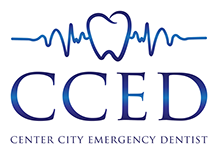The weather has been getting a lot nicer and warmer, and you know what that means – wedding and event season. Prepare yourselves for picnics, promotions, parks, passion and, of course, photography. During this momentous time of year, people come out of winter hibernation and seek teeth whitening to attempt to forget all of that coffee they were drinking to survive when it was ten below zero.
What should you expect from teeth whitening? There are many best practices and things you should know—not every dentist or service will share them with you, because it results in you buying less teeth whitening services from them. We want to be crystal clear transparent though, and we’d like to offer some realistic advice on what you should expect during and after your teeth whitening procedure.
Where does the whitening in teeth whitening treatments come from? Typically, dentists are using a chemical called Hydrogen Peroxide. Many people already know what this is—it’s that stuff used to clean wounds and reduce infections. The peroxide permeates the dentin – the outer enamel that protects your teeth and absorbs discoloration. After it goes through, it then denatures and removes the coloring agents that have permeated the dentin over time. Through this gradual process, teeth are whitened and get back the vibrant look they deserve.
When you get a whitening treatment at our facility, we use a proven method that takes a bit of time, but provides great results, especially if you have somewhere to be in the days immediately following the procedure, when your teeth at their whitest. However, there are many things to be expected with a teeth whitening procedure that many will not tell you.
First off, we recommend that after you receive a teeth whitening procedure, or even if you decide to buy one at the drugstore and attempt it yourself, you should stay away from any kind of drink or food that could potentially stain your teeth. That means eating candies with strong dye in them or veggies like beets, or drinking dark red wine and coffee, will contribute to more staining, as your teeth will be in a porous and semi-vulnerable state after going through teeth whitening procedures.
Your teeth will be slightly sensitive as well, especially if you had to undergo a thorough whitening treatment and spend a few days with the bleach tray or whitening strips on your teeth. The peroxide does penetrate the crystalline structure of your teeth, leaving it slightly exposed. This means your teeth will be sensitive to temperatures, both hot and cold. It’s not unusual to have difficulty drinking cold water or hot coffee after having your teeth whitened, whether you had it done professionally or did it at home.
Every dental whitening product will come with recommendations from the American Dental Association. We recommend that you listen to these recommendations, following them closely. Failure to follow their recommendations will result in your teeth becoming discolored again before they ever get a chance to shine. You should also expect that your teeth will gain a few shades of discoloration regardless of what you do. Teeth are naturally off-white and using whitening products over and over again will result in sensitivity of the teeth time and time again.
If you have any other questions, call us and schedule an appointment for a teeth whitening consultation where we can answer all of your questions and give you proper guidance and suggestions. Call us during our office hours at 215.254.6679 or schedule an appointment with us online!
